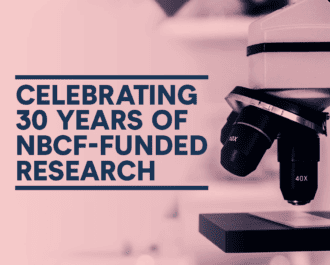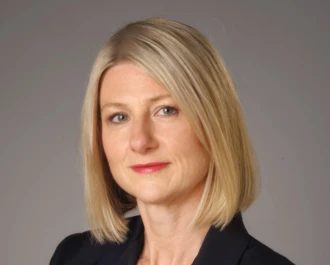 Treat
Treat
A new blood test being developed by researchers at the Olivia Newton-John Cancer Research Institute may one day replace current gold-standard tests for breast cancer, including mammograms.
The blood test, which is also referred to as a “liquid biopsy”, was developed by NBCF-funded researcher Associate Professor Alexander Dobrovic. It works by detecting the small fragments of cancer tumours which are circulating within a patient’s bloodstream. These fragments include DNA from the tumour, which can then provide information about the cancer. The blood test could be used for the initial detection of cancer, or to monitor changes during treatment or remission stages.
One of the main advantages of the test is that it is easy to use. Rather than a patient needing to attend specialist imaging clinics, they could have a blood test within their normal clinical care.
Whilst the blood test appears highly promising, it is still early days. The test will soon be used in 18,000 Australian women in remission from breast cancer in a clinical trial, to see if it can detect any recurrence of disease. This will provide proof-of-concept validation. If successful, the test could then be modified to be used in early disease detection and diagnosis.
Associate Professor Dobrovic has a special connection with breast cancer, having lost both his mother-in-law and a close friend to the disease. This personal history has inspired him on his journey to develop a universal technology to enable more frequent, non-invasive monitoring of breast cancer patients through their therapy.
He explains that the test will be invaluable in helping bring “personalised medicine” to patients with breast cancer.
“The test will allow nuanced treatment of breast cancer patients based on the results from their liquid biopsy,” he said. “This will tell us whether a given therapy is working, or whether further treatment is required. In addition, early detection of relapse will enable the next round of therapy to begin when the disease burden is low, improving outcomes for women.”
NBCF have funded this project with a grant of AUD$385,000, and Associate Professor Dobrovic is incredibly grateful for the generosity of our supporters.
“Thank you for supporting this vital research. We researchers are passionately committed to reducing the impact of breast cancer on patients, their friends and loved ones, and the community.”
More News Articles
View all News Treat
Treat


